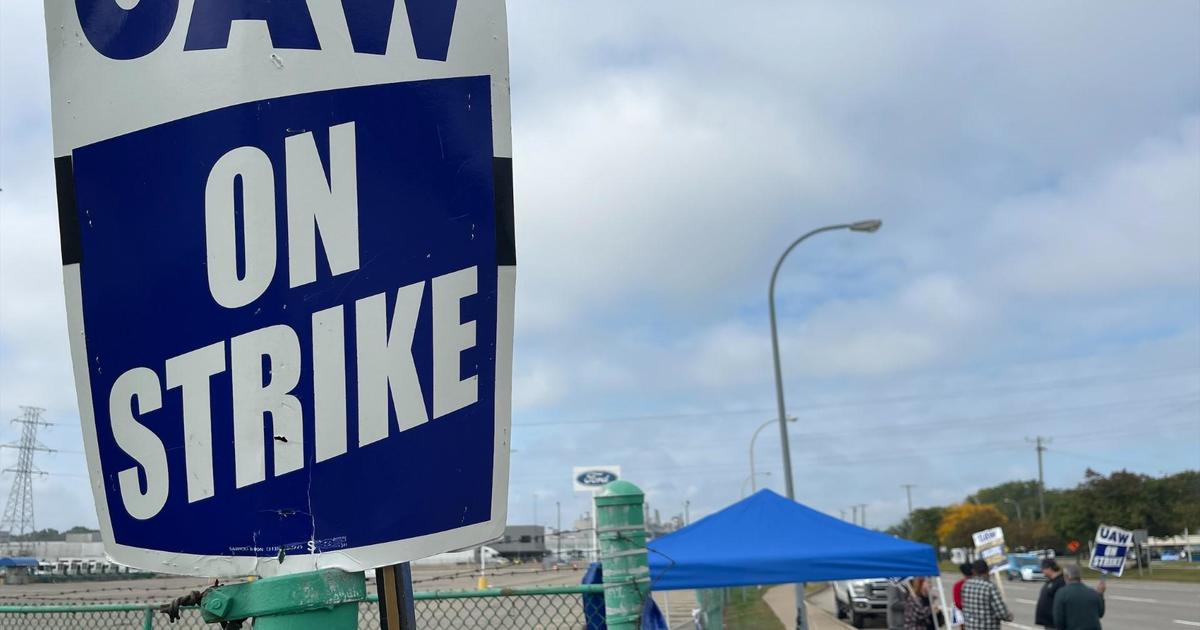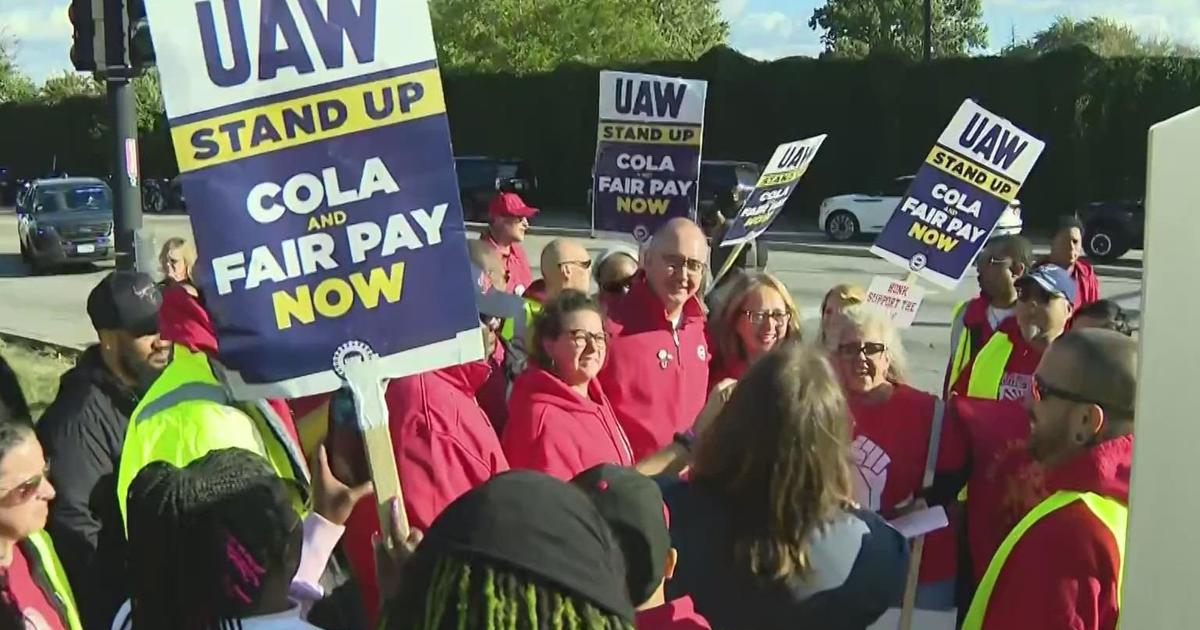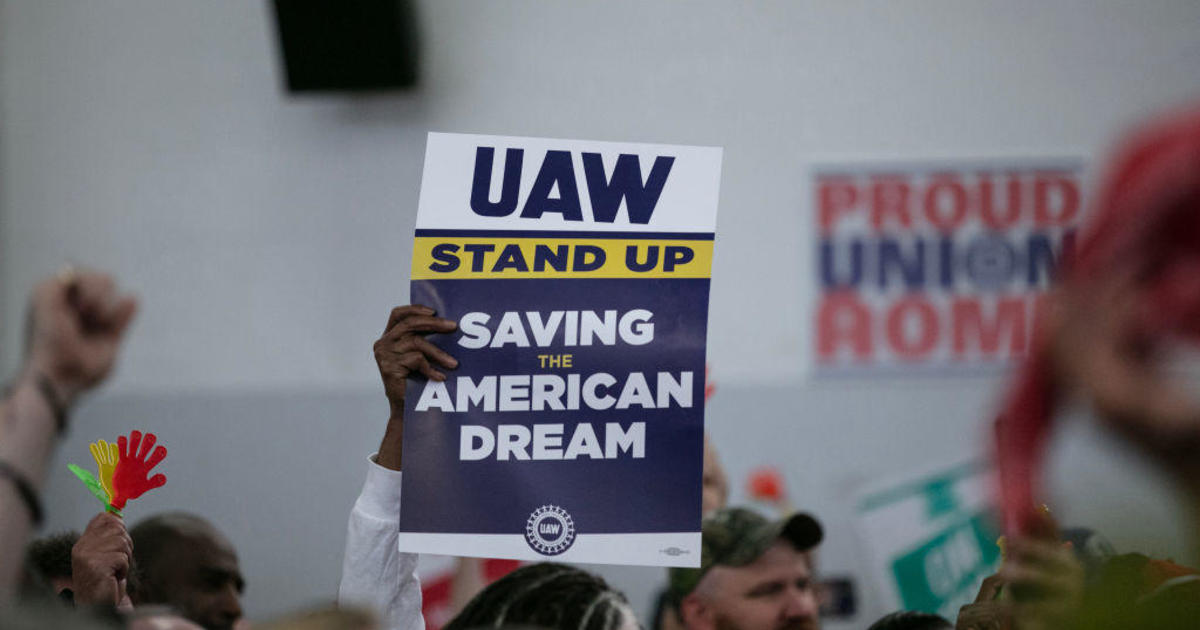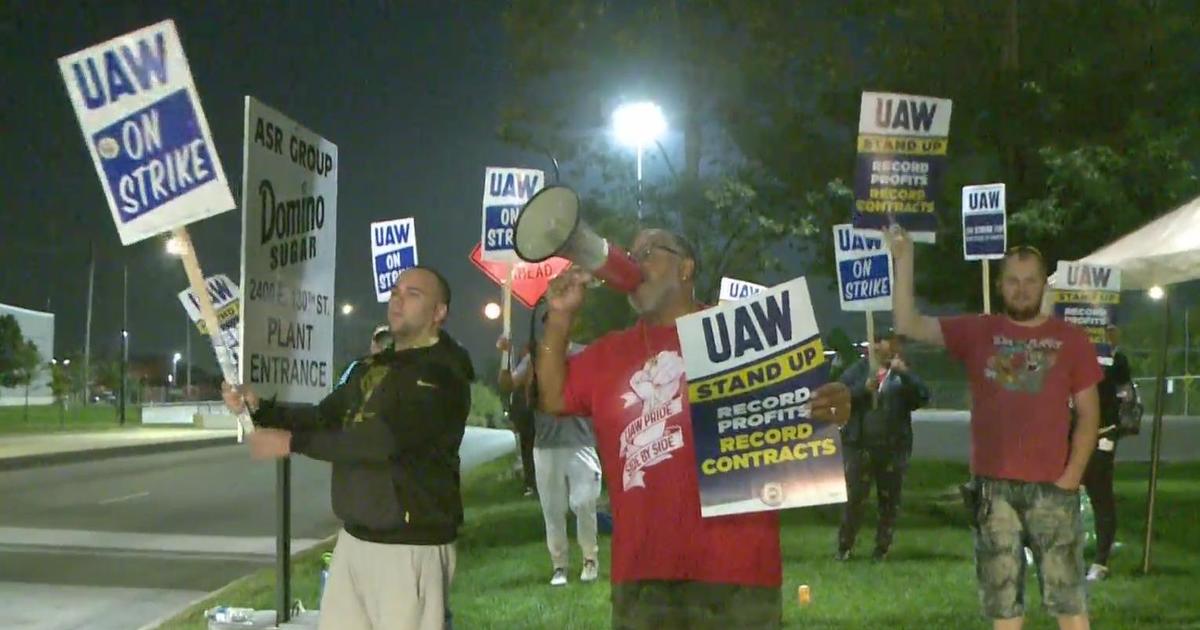UAW chief Shawn Fain says strike talks with automakers are "headed in the right direction"
United Auto Workers President Shawn Fain said Friday that the union's ongoing strike against Detroit's Big Three automakers is securing vital concessions, mooting the need to expand the work stoppage — at least for now.
"We are winning, we are making progress and we are headed in the right direction," the union leader said in a broadcast on Facebook.
As evidence of that momentum, Fain said General Motors has agreed to fold employees at its forthcoming electric vehicle battery plant in Indiana into the UAW contract. "Today we made GM say yes when they'd rather say no," he said.
Yet while Fain said negotiations are progressing, he also emphasized that Ford, GM and Stellantis (the parent company of Chrysler, Dodge, Jeep and Ram, along with several foreign car brands) still need to meet union demands on issues including retirement benefits.
"Our strike is working but we're not there yet," he said. "Everything we've done has been [with] one goal in mind: record contract that reflects Big Three record profits."
The UAW's demands include a 36% pay increase over four years; annual cost-of-living adjustments; pension benefits for all employees; greater job security; a faster path to full-time status for temporary workers; and a four-day work week. Along with a pay hike, the union also wants the automakers to eliminate a two-tiered wage system the companies adopted in 2007 as the companies were struggling financially.
The automakers say they have made reasonable counteroffers, arguing that the UAW's wage and other demands would make it hard to compete with other car manufacturers.
Automakers said this week they're still negotiating in good faith, with Ford saying Thursday it would "continue to work towards finding solutions to address outstanding issues."
"Negotiations remain ongoing, and we will continue to work towards finding solutions to address outstanding issues," GM said Friday. "Our goal remains to reach an agreement that rewards our employees and allows GM to be successful into the future."
"Transformative win"
Fain said the UAW was set to announce an additional strike at GM's plant in Arlington, Texas, but union leaders changed course upon receiving a written agreement from the automaker that it would add its EV battery manufacturing to the UAW contract. The agreement was a "transformative win," for the union's membership said Fain, who sported a white T-shirt with the words "EAT THE RICH" in large bold letters for the livestream.
Workers at GM's Arlington plant produce the Chevrolet Tahoe and Suburban, the GMC Yukon and Yukon XL as well as the Cadillac Escalade and Escalade-V, CBS News Detroit reported.
GM adding the EV plants is "a monumental development," said Marick Masters, a business professor at Wayne State University.
"GM went far beyond and gave them this," he said. "And I think GM is thinking they may get something in return for this on the economic items."
Battery plants are key to the union's survival as the auto industry makes a generational transition from internal combustion engines to vehicles that run on electricity. Fain has long wanted to pull the battery factories into the national contracts with the intent of winning top union wages for workers.
If electric battery plants are nonunion and pay less than UAW-represented assembly plants for gas cars, workers who might eventually lose their jobs at gasoline engine and transmission plants would have no place to go to get the same wages and benefits.
The auto companies have said the plants, mostly joint ventures with South Korean battery makers, had to be bargained separately.
Fain also used Friday's address to mention other concessions made by the Big Three: Ford began its negotiations by offering a 9% wage increase and that has more than doubled to 23%. Stellantis and GM meanwhile have current offers of 20% increases.
Fain said Ford and Stellantis have agreed to restore cost-of-living adjustments to worker wages, which were eliminated in 2007. The automakers have also agreed to reduce the time it takes for workers to reach top wages, which is currently eight years, to three years at Ford and four years at GM and Stellantis, he said.
The Associated Press contributed to this report.
for more features.



